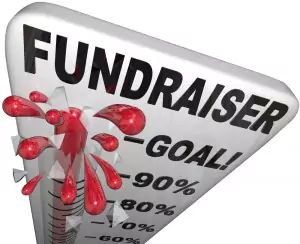
There are many ways to request donations from active charity donors. One of the most popular and most efficient ways to do this is by writing fundraising letters. The results of fundraising campaigns significantly depend on the purpose of a fundraising letter, the way it is written, and the recipients themselves.
Steps for Writing a Fundraising Letter
- Set the purpose of your letter. A fundraising letter may contain a request for financial donations, sponsorship requests, or requests for goods or services. These letters ask the reader to take action by providing financial or other material aid; however, the content of the letter must correspond only with its category, so avoid asking for sponsorship and financial aid in the same letter.
- Decide on and understand your target audience. The target audience (a charitable organization or a private person) is, to some extent, defined by the type of the fundraising letter. Still, you must understand the message from your reader’s point of view; know your addressee’s donating capabilities and how intense their desire to donate may be.
- Introduce yourself and your organization. Anticipate some possible questions your addressee might have from the very beginning. For example, you can specify the reputation of your organization, its mission, and the purpose for the letter.
- Explain your cause in the first paragraph of the main body section: introduce a specific need, state how important it is, and mention the significant role of your organization in satisfying that need. Claim that your addressee can make a great contribution by satisfying the need and providing invaluable assistance by donating.
- In the second paragraph of the main body, clarify exactly what donating will achieve and set the levels of donation amounts.
- In the third paragraph, describe the consequences that may arise in the case of not acting. This helps donors understand how important their contributions are, and besides, it serves as an additional motivation factor.
- In the conclusion section, thank your donors in advance for their support and understanding, and briefly remind them of the importance and necessity of their aid.
Topic Selection
The subject of a fundraising letter depends on your purpose. For instance, fundraising letters can request:
- general donations
- annual fund solicitations
- special event attendance
- program-specific donations
- sponsorship
- donations for charity auction items
Key Points to Consider
- Follow up after you sent out your fundraising letters. This is usually done via phone, with second mail-outs, postcards, thank you letters, or even handwritten notes. This will endear some of the donors towards your organization, which is useful if you plan on cooperating with these donors in the future.
- Get more attention to your fundraising letter by adding images to it. This makes the letter more interesting to read, but it is important to not overuse graphics. This may distract readers from the content of the letter.
- If you are using email to distribute your fundraising letter, don’t send the letter as an attachment. People rarely open attachments from unfamiliar senders. On the other hand, placing your letter into the body of the email will increase its chances of being read.
- The fundraising letter must always include such components as the return address, the name of the organization, a contact phone number, and company/organization logo.
Do and Don’t
Do
|
Don’t
|
Common Mistakes When Writing a Fundraising Letter
– Not stating the purpose of your fundraising letter from the very beginning. The quicker you get to the point, the better.
– Trying to cover too many objectives in one letter. Remember the rule: one request per fundraising letter.
– Forgetting to emphasize exactly how the donor will make a difference by donating to your organization. The donor must understand how and why their contribution is important.
Now that you have acquainted yourself with the basic fundraising letter writing tips and rules, you can check out our fundraising letter samples to link theory with practice.
Follow us on Reddit for more insights and updates.


Comments (0)
Welcome to A*Help comments!
We’re all about debate and discussion at A*Help.
We value the diverse opinions of users, so you may find points of view that you don’t agree with. And that’s cool. However, there are certain things we’re not OK with: attempts to manipulate our data in any way, for example, or the posting of discriminative, offensive, hateful, or disparaging material.